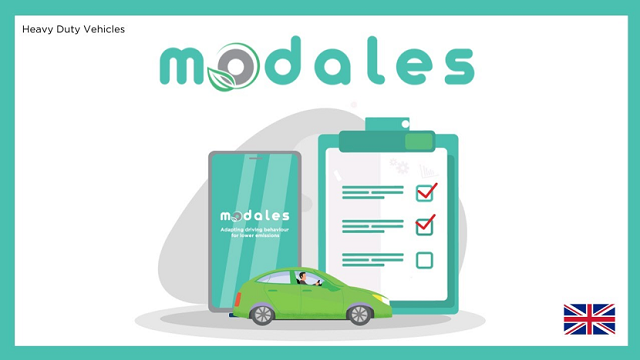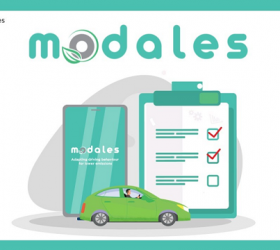here are plenty of proposed legislative and technological solutions to reduce road vehicle emissions. The EU-funded MODALES project took a different approach: it focused on driver behaviour. The results are now in.
 The MODALES project, which ended earlier this year, analysed the impact of driving behaviour on vehicles’ carbon monoxide, nitrogen oxides and carbon dioxide emissions.
The MODALES project, which ended earlier this year, analysed the impact of driving behaviour on vehicles’ carbon monoxide, nitrogen oxides and carbon dioxide emissions.
In turn, MODALES developed a series of practical and affordable measures that any driver can apply immediately and at all stages of vehicle operation.
The combined use of MODALES training material and its mobile application reduced individual drivers’ emissions by up to 60% for carbon monoxide, 30% for nitrogen oxides, and 7% for carbon dioxide.
RoadMasters, IRU’s risk and talent management system, and the IRU Academy eco-driving course already teach fuel efficiency techniques while emphasising road safety and the environment. Furthermore, the IRU Green Compact, which also includes a driver training pillar, provides a collective road map to decarbonise the road transport industry by 2050.
IRU Director EU Advocacy Raluca Marian explained how the MODALES project expanded these efforts, “We joined the MODALES project as it focused on innovative and complementary solutions to enhance low-emission practices for all types of road vehicles.”
“MODALES allows us to address three main emission sources – the powertrain, brakes and tyres – and combines them with driving behaviour to create a more sustainable transport sector,” she added.
For the past three years, MODALES project partners monitored the driving behaviours of test drivers, analysed how typical driving patterns affected vehicle emissions, and identified the most effective practices to reduce emissions.
The research results showed emission reductions in the transport sector through a combination of anti-tampering measures, retrofit campaigns, and behavioural changes.
Multi-language training videos, awareness campaigns with driving tips, and a dedicated driver assistance smartphone application have been developed based on the project’s findings.
The trainings apply to all types of vehicles, from private cars to light-duty (including taxis) and heavy-duty vehicles, with subsections for pre-trip, trip and maintenance aspects.
The awareness campaign summarises and reinforces key messages of the training content in a social media-friendly format.
“While waiting for the technological maturity and operational readiness of zero-emission heavy-duty vehicles, road transport operators are training their drivers to drive more efficiently, which translates into fuel savings and enhanced fleet maintenance,” highlighted Raluca Marian.
Among other contributions to the project, IRU produced a MODALES low-emission training video for heavy-duty vehicles in cooperation with its member DB Schenker.
Stefaan Bertels, DB Schenker’s Business Support Manager, described the holistic approach behind this partnership, “Whether it is fleet electrification or exploring alternative fuels, it is equally important to be able to use these assets in the best possible way.”
“That is exactly why we decided to support IRU on the MODALES low-emission driving campaign, as it is not only about making your fleet more sustainable, but also about using it in a sustainable way, looking at improving road safety or reducing wear and tear through intelligent driving,” he added.
More details about the MODALES project, its results and multimedia content can be found on the IRU website.




